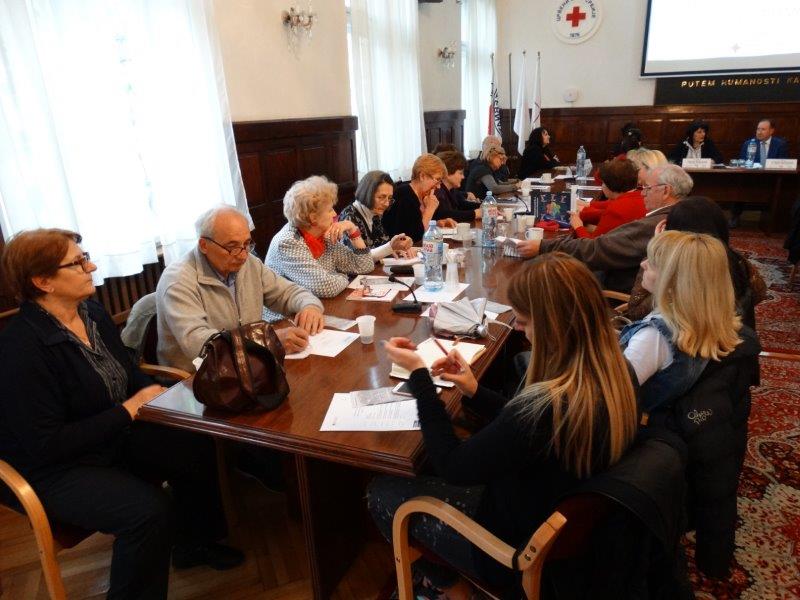- news
- the red cross of serbia marked the world health day, 7 april with a conference entitled “depression: let’s talk” (1)
The Red Cross of Serbia marked the World health Day, 7 April with a conference entitled “Depression: let’s talk”


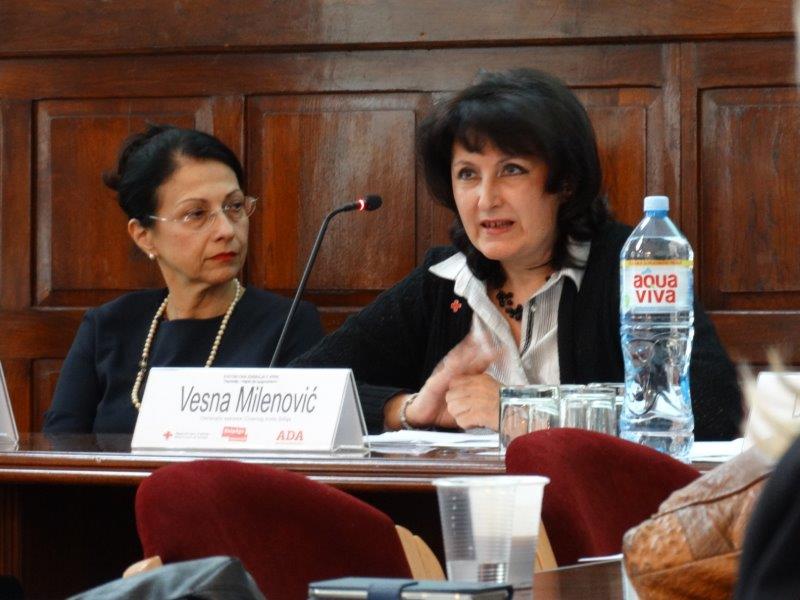
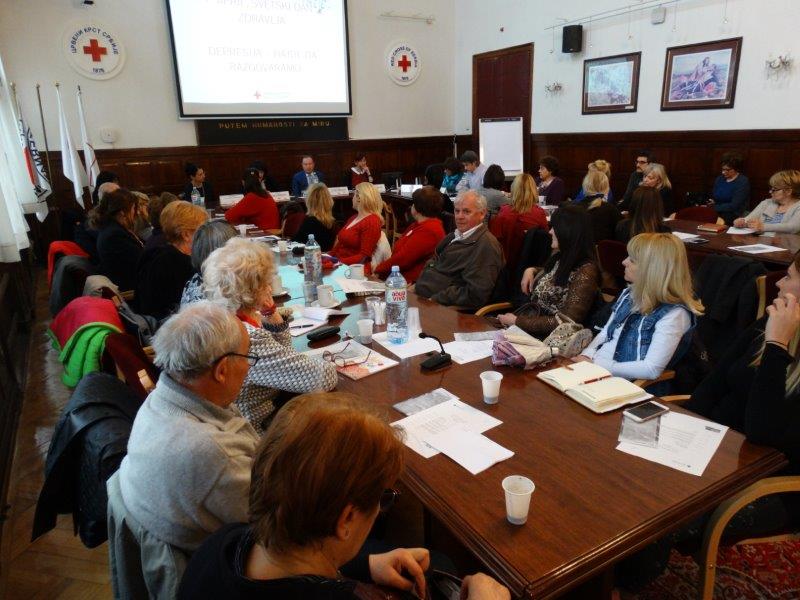
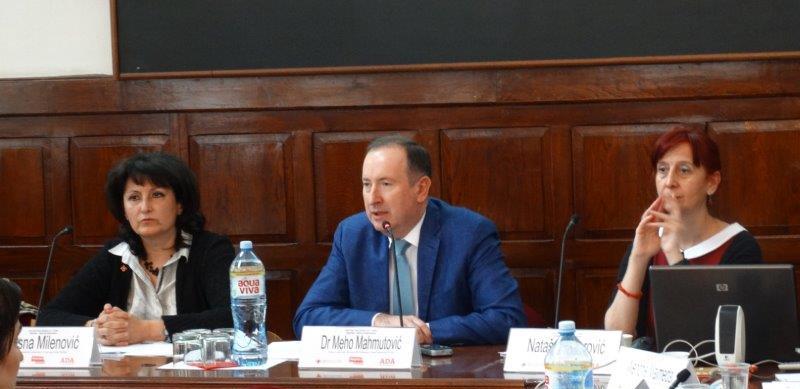


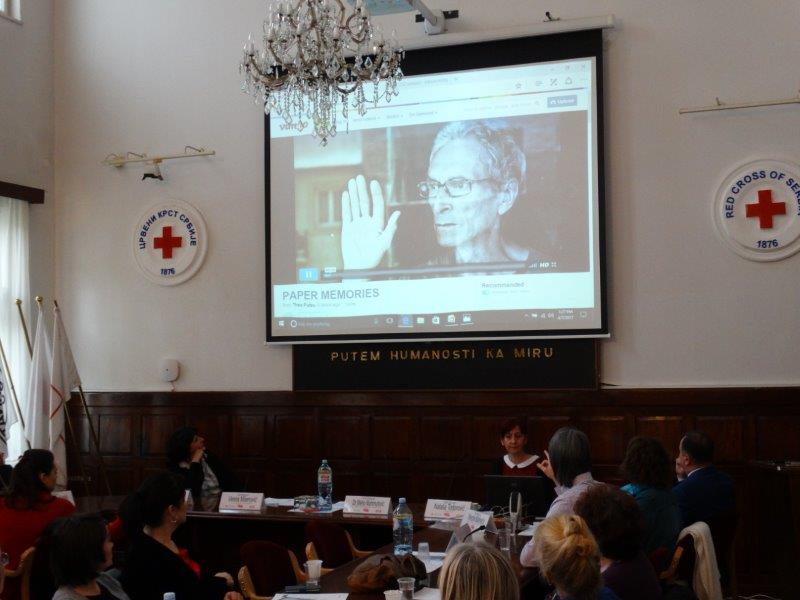
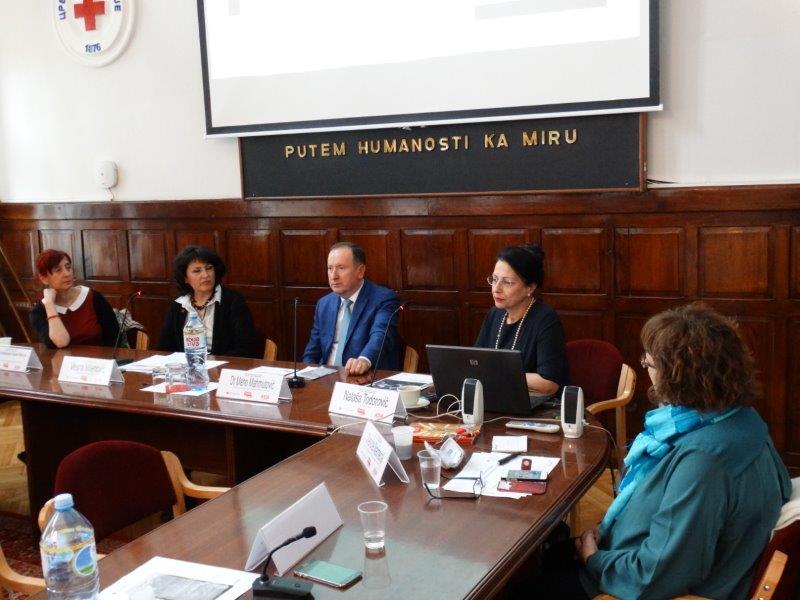


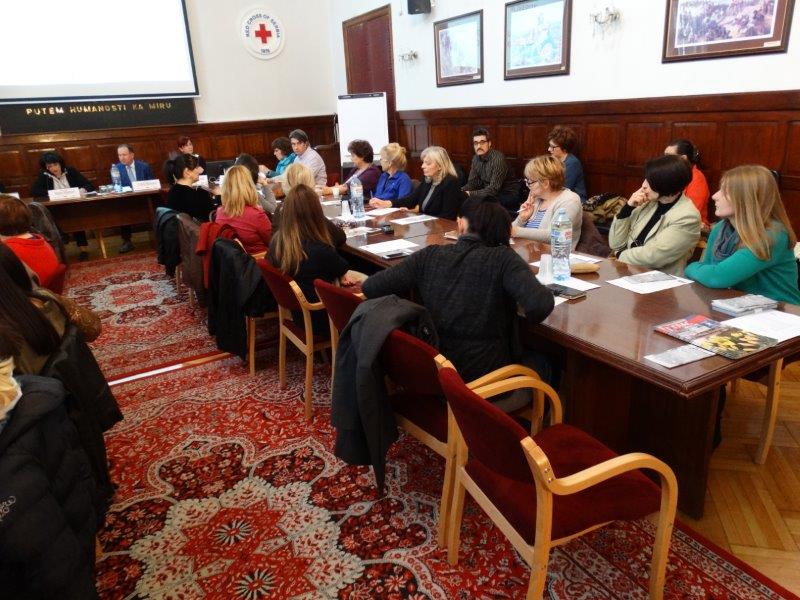
The conference “Depression: let’s talk” was the Red Cross of Serbia’s main activity related to the World Health Day 2017. This year’s conference was focusing predominantly on the depression in older people and was a part of the global Age Demands Action campaign (ADA) coordinated by HelpAge International.
The following speakers participated in the conference: Dr Meho Mahmutovic, State Secretary in the Ministry of Health of the Government of Serbia, VesnaMilenovic, Secretary General of the red Cross of Serbia, Prof Dr Aleksandra MilicevicKalasic, Faculty for Media and Communications, Paulina Firicaski, psychologist in the Gerontological Centre Belgrade, Natasa Todorovic, Red Cross of Serbia and ProfDr WencheMalmedal of the Medical School of the Norwegian University for Science and technology (NTNU), Trondheim, Norway.
The conference was opened by Ms. VesnaMilenovic, Secretary General of the Red Cross of Serbia emphasising that through public powers bestowed on the Red Cross by Serbian government the organisation can devote a lot of its time and resources to preventive health and raising public awareness on the importance of healthy life styles. World Health Day is a date when all the Red Cross branches in Serbia focus on the public health issue chosen to be highlighted by World health Organisation and make concentrated efforts to improve health and wellbeing of people in Serbia. VesnaMilenovic also underlined that research results show volunteering improves physical and mental health, lowers the risk of depression and improves self-confidence. People who volunteer are more satisfied with their lives and are happier so, the Red Cross of Serbia as the largest national volunteering organisation has a great positive influence in health prevention and protection of mental health.
Dr Meho Mahmutovic, State Secretary in the Ministry of Health of the Government of Serbia talked about the Ministry making a decision to improve prevention of various depressive disorders in older people. The result of this decision is that early screening for depression will soon be introduced in primary healthcare but that the Ministry also makes other efforts related to positive medication lists and National Strategy on Mental Health. The Red Cross of Serbia and HumanaS network have for the past four years been advocating – particularly through ADA campaigns – for introduction of early screening for depression for older people.
Prof Dr Aleksandra MilicevicKalasic talked in more detail about the medical aspects of depression. Depression is an illness characterized by persistent sadness and a loss of interest in activities that you normally enjoy, accompanied by an inability to carry out daily activities, for at least two weeks. In addition, people with depression normally have several of the following symptoms: a loss of energy; a change in appetite; sleeping more or less; anxiety; reduced concentration; indecisiveness; restlessness; feelings of worthlessness, guilt, or hopelessness; and thoughts of self-harm or suicide.
One out of ten persons in the world is affected by a serious depressive disorder and one out of five has had a serious depressive episode during their lifetime. It is estimated that by 2020 depression will be the second most frequent cause of disability worldwide.
Natasa Todorovic of the Red Cross of Serbia presented results of a research study done in 2016 in the following Serbian cities: Jagodina, Kragujevac, Loznica, Negotin, Pirot, Pozarevac, Velika Plana, Vladimirci and Vrbas. The research tool used was 9 PHQ (The Patient Health Questionnaire) and the research covered two population groups of people over the age of 60: persons living in their own household, receiving some form of home care service and not involved in the work of the Red Cross or other civil society organisations and persons living in their own household, not receiving home care services and being active in the Red Cross or other civil society organisations through work of self-help groups. The total number of interviewees covered is 616.
The research results show the following distribution of depressive symptoms in the interviewed population: 22% of the interviewees have no depressive symptoms, subclinical forms of depression account for 55% of the interviewees, milder forms of depression (dysthymia and milder forms of major depression) are found in 17% of the population and 6% of the interviewed group displayed symptoms of major clinical depression. Depression in older people is a serious public health problem. Considering the serious impact depression has on health and quality of life in the older age and that it negatively influences the outcomes of other chronical diseases, it is necessary to have as early diagnosis as possible and adequate response not only by the healthcare system but also the social welfare protection system. The research results indicate some of the risk factors that influence development of depression in older people. The level of social activity is identified as one of the factors and this underlines the importance of creating a supportive environment to include older people in the social sphere of their communities.
Paulina Firicaski of the Gerontological Centre Belgrade talked about the incidence of depression disorders among the beneficiaries of the centre and confirmed that in their sample women tend to be more frequently suffering from depression than men.
Prof Dr WencheMalmedalof the Medical School of the Norwegian University for Science and technology (NTNU), Trondheim, Norway talked about the research recently done in Norwegian nursing homes that looked into violation of human rights in these institutions. The research focused on three aspects of universal human rights: the right to be protected from abuse, inhuman, and degrading treatment, the right to respect for the individual's personal integrity and the right to necessary and adequate health services. The results show that despite generally high standards of service in Norwegian nursing homes, there are also repeated instances of violation of human rights of older people that demand adequate response. The most frequent violation of these rights is related to the personal integrity as it pertains to beneficiaries being provided medical treatment without their explicit consent.
One of the significant pieces of data from the Professor Malmedal’s presentation is related to statistics showing that only 14% of the Norwegian population over the age of 80 is living in nursing homes with only 30% of the population over the age of 90 living in these institutions. This demonstrates the generally high average quality of health and functionality among older people in Norway but also indicates the quality of available community and home care services that enable older people to live independent lives.
The conference was attended by more than 60 participants, representatives of Social Welfare and Health Centres as well as the older volunteers of the Red Cross of Serbia.
